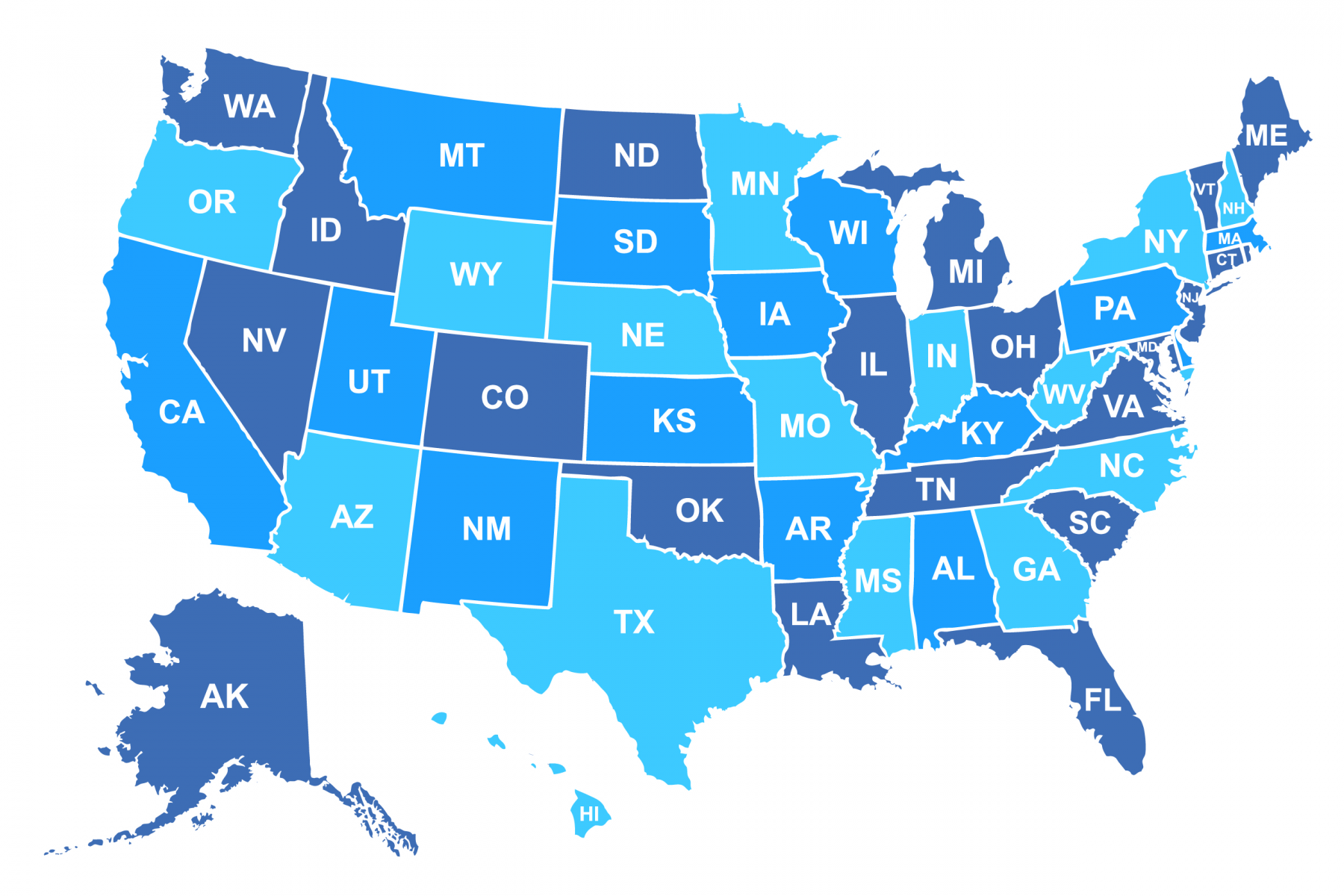Over the years we have worked with organizations in many states and have had the chance to form some opinions about the choice of domicile for nonprofit corporations.
Table of contents
Some of the factors that have influenced our thoughts on the best choice of domicile for nonprofits include states requiring mandatory audits, multiple agencies overseeing nonprofits, unclear statutes governing nonprofit corporations, and aggressive regulation.
Mandatory Audits
A number of states have implemented audit requirements that are quite burdensome for nonprofits. For example, Illinois requires charitable organizations that receive annual contributions of $300,000 or more to file an audited financial statement prepared by an independent CPA annually.
According to the Council of Nonprofits, other states that require audits include
- Arkansas
- California
- Connecticut
- Florida
- Georgia
- Hawaii
- Kansas
- Maine
- Maryland
- Massachusetts
- Michigan
- Minnesota
- Mississippi
- New Hampshire
- New Mexico
- New York
- New Jersey
- North Carolina
- Pennsylvania
- Rhode Island
- Tennessee
- Virginia
- Washington
- Wisconsin.
Each state has different exceptions to the audit rule and some are more generous than others.
Some will say audits promote transparency and should be required. However, nonprofit audits are also extremely expensive. This causes many organizations to choose to undergo a full audit only every other year or every three years with less expensive CPA reviews in the intervening years to conserve resources. Incorporating in a state that requires an annual audit robs the organization of this choice.
Overbearing Regulation
Many states have three or more agencies regulating nonprofits. Such states often require multiple, often duplicative, filings.
For example, in California, nonprofits must file with the Attorney General, the Secretary of State, and the Franchise Tax Board. Other states require fairly common transactions such as dissolutions and mergers with other nonprofits to be blessed by a judge (hi Massachusetts!).
Further, some states micromanage nonprofit governance. For example, California prohibits nonprofits from appointing non-voting board members or non-board members to board committees.
Further, in most states, the Attorney General has common law authority to police charities. From time to time, Attorneys General push that authority to shocking degrees.
Case in point, in 2003, the South Dakota Attorney General opposed Banner Health’s sale of a healthcare facility in South Dakota to another nonprofit healthcare provider on the theory that the asset was a community asset, forcing Banner to make a substantial payment to withdraw from the state.
See related post: North Dakota Annual Report for Charitable Solicitation
Confusing Statutory Framework
Some version of the Model Nonprofit Corporation Act has been adopted in most states and provides a clear framework for regulating nonprofit corporations. However, some states, have opted to adopt their own nonprofit corporation codes based on the state’s for-profit corporation code.
Examples of such states include
- Florida
- Illinois
- Louisiana
- Maryland
- Massachusetts
- Michigan
- Nevada
- New York
- Oklahoma
- Pennsylvania
The complexity and clarity of the law in such states varies, but they lack the rich sources of precedent and statutory interpretation available to states that follow some version of the Model Nonprofit Corporation Act.
Also, it is important to clarify Delaware’s approach to nonprofit corporations. Delaware has long been considered the domicile of choice for for-profit companies, especially public companies.
However, it is not an ideal jurisdiction for nonprofits. Unlike most other jurisdictions, Delaware does not have a separate code governing non-profit corporations.
Instead, non-profit corporations are governed by the same provisions that govern for-profit corporations. In the past, Delaware nonprofits were forced to grapple with how to apply provisions referencing shareholders to their non-stock corporations.
Recently, Delaware amended its laws to include translator provisions that generally require the term member to be substituted for a shareholder in provisions applicable to nonprofits. The result is that Delaware law requires all nonprofit corporations to have voting members which many nonprofits seek to avoid.
Kansas patterns its approach to nonprofit corporations on Delaware law and creates similar challenges.
Favorable Jurisdictions for Nonprofit Corporations
For those who prefer less regulation and red tape, Arizona stands out as an attractive domicile for nonprofit corporations. I realize this is a bit self-serving but consider the facts.
Arizona has adopted the Model Nonprofit Corporation Act, does not mandate audits for nonprofits, does not require nonprofits to register to solicit in the state, does not regulate commercial co-ventures, aligns tax filings with the federal requirements, and limits the attorney general’s authority to that conferred by statute.
When considering the best choice of domicile for your nonprofit corporation, these combined factors make Arizona a highly favorable jurisdiction for nonprofits to operate in.
Ellis Carter is a nonprofit lawyer with Caritas Law Group, P.C. licensed to practice in Washington and Arizona. Ellis advises nonprofit and socially responsible businesses on corporate, tax, and fundraising regulations nationwide. Ellis also advises donors with regard to major gifts. To schedule a consultation with Ellis, call 602-456-0071 or email us through our contact form.

